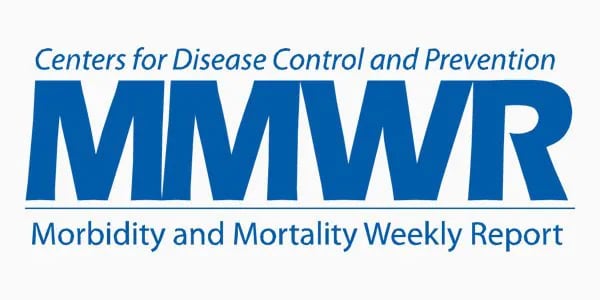This transcript has been edited for clarity.
Welcome to Impact Factor, your weekly dose of commentary on a new medical study. I'm Dr F. Perry Wilson of the Yale School of Medicine.
Around 20 million Americans live within 1 km of a hydraulic fracturing (fracking) well.
Fracking began in the '50s but came into its heyday in the '90s, when the technique started being applied broadly to create fissures in deep shale deposits, liberating the natural gas and oil from within. If the outcome of interest is the extraction of hydrocarbons, fracking has been an astonishing success, leading the US to its current position as a dominant force in world oil markets.

But if the outcome of interest is public health, the story is not so rosy.
Multiple studies have suggested a link between fracking and a variety of adverse health outcomes, including one study — appearing in Nature Energy — which found an increased risk for death among elderly individuals living downwind of fracking sites.
But there have been signals of harm on the other end of the life cycle as well, with this Pennsylvania study suggesting that a pregnant woman's proximity to a fracking well is associated with adverse birth outcomes.
We got some validation of those Pennsylvania findings this week with a study appearing in JAMA Pediatrics, which examined the outcomes of over 30,000 pregnancies in Alberta, Canada.
The analytic setup was fairly straightforward, given that Canada's universal health system captures data on all pregnancies. Women were classified, based on postal code, as living within 10 km of a fracking well or not. You can see the density here along the line of shale deposits.

The question, then, is whether pregnant women who live close to fracking wells would have a higher risk for adverse birth outcomes.
The authors examined five adverse outcomes: spontaneous preterm birth, indicated preterm birth, small for gestational age, major congenital abnormalities, and severe neonatal morbidity or mortality.

After adjustment for multiple factors including, importantly, socioeconomic status, there was still a statistically significant increase in small-for-gestational-age infants and infants with major congenital abnormalities.
To be fair, the mechanism here is not entirely clear. Fracking uses a slew of chemicals, many of which are classified as toxic to humans, but they are injected deep, deep underground — well below the level of aquifers and water sources. Groundwater contamination, when it occurs, is often due to spills on the surface.

The researchers also note that with a fracking well comes trucking. Trucking brings pollution, which also might affect pregnancies.
Whether the observed association is causal is still unclear, though the evidence is certainly mounting. To channel Bradford Hill for a minute, I can point out that the best evidence of causality — experiment — is not going to happen. No one will be randomized to living near a fracking well.
Hill would have liked to see a dose-response effect, whereby individuals living closer to wells would have worse outcomes than those living farther away. The study found no such effect when distance to the closest well was used as the exposure of interest.
Of course, dose is not just distance. The authors did find that living near more wells is worse than living near fewer wells, with those living near greater than 100 wells at the highest risk for adverse pregnancy outcomes.

So no, this single study is not a smoking gun. In the context of prior studies, though, the gun is a bit smokier. The problem is that the political and economic forces supporting fracking are dramatically more powerful than those supporting the people who live near the wells, who are often quite disadvantaged — particularly in Canada, where mineral rights default to the crown instead of the landowner. Until those individuals start to wield real political power, there will be no fracking ban. It's not so different in the United States.
If change will come, it will be by understanding the mechanism. The next round of studies needs to drill down — pardon the pun — to figure out, if these associations are real, what drives them. Is it toxins in the water or the air or the soil? Or something else? Until the science is undismissable, I'm afraid it will be dismissed.
F. Perry Wilson, MD, MSCE, is an associate professor of medicine and director of Yale's Clinical and Translational Research Accelerator. His science communication work can be found in the Huffington Post, on NPR, and here on Medscape. He tweets @fperrywilson and hosts a repository of his communication work at www.methodsman.com.
Follow Medscape on Facebook, Twitter, Instagram, and YouTube
Credits:
Image 1: Wikipedia
Image 2: JAMA Pediatrics
Image 3: F. Perry Wilson, MD, MSCE
Image 4: Wikipedia
Image 5: JAMA Pediatrics
Medscape © 2022 WebMD, LLC
Any views expressed above are the author's own and do not necessarily reflect the views of WebMD or Medscape.
Cite this: Fracking May Pose a Risk to the Developing Fetus - Medscape - Apr 06, 2022.














Comments